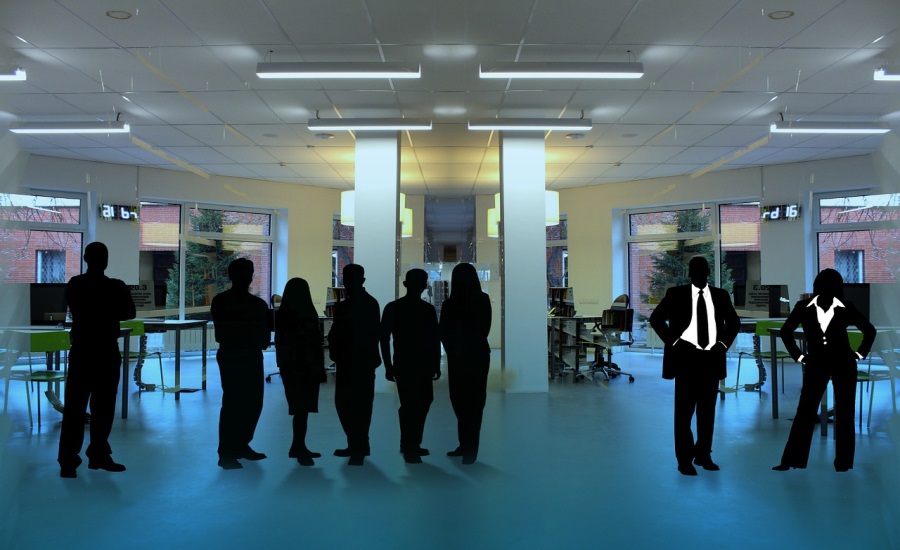I started my career in property restoration in a shared office with myself, my manager and space designated for our crew to meet and interact. At most places I have worked since, the more normative office is laid out in designated segments of isolation. While I don't dismiss the value of personal space and enjoy my privacy as much as anyone, I have found the value of shared spaced and have worked to create open work space in every team that I have supervised.
Shared Space Equals Shared Experiences
When you share an office, you can feel the pulse of the team. You hear your team, even when you are not conversing with them directly, you are hearing their interactions. While there are times when the noise level has to be managed, when you hire people who are respectful they will likely already understand the dynamics of time and place in an open space.
For our teams the benefits of a communal office within our department has far outweighed the perceived negatives. Imposing an open office on people who are not ready for it is a recipe for disaster. Transitioning to a shared space is made much more seamless when you have people who enjoy working together and/or you hire people who understand the culture. Implementing an open office is not of any benefit if it does not reflect your culture or add value to your team.
Open Space Equals Open Communication
Creating a shared space has allowed us to more readily share information at all levels of our department. Having our crew come into our office in the morning creates a natural opportunity to discuss the day's assignments. When the crew returns in the evening, we can debrief and discuss needs for the following day.
These organic connection points throughout the day have increased our interactions at professional and personal levels. Combining our open space with making our workloads visible has helped us to elevate our clarity across our team interactions.
Your office is your second home. Arguably, you spend more time in your work space with your work peeps than with your actual family, so making it an enjoyable and functional environment should be a priority.
When drafting the plan for your work space - whether open, traditional or some other system with a fancy name - think about the following:
- Values: If communication and clarity are important to you, what better way to construct your work space than in such a way that promotes more natural interactions?
- The Team: You need more face time with your team, your team wants more face time with you; utilizing a shared work space benefits all. If your team members do not value or enjoy each other, putting them in isolation will not solve those underlying issues.
- The Process: Would your team benefit from having discussions in the morning, check points during the day and being able to debrief in person at the end of the day? Of course all of these things can be done when you have separate offices, but they also can happen more organically when you have a shared space.
Maybe we are weird. Maybe we are the exception to the norm, but after 14+ years in the restoration industry (a mix of construction and service), I can tell you from experience that having a shared space has been far more valuable than the perceived drawbacks.
For our department, we have hired people who bring value to the team, we have been protective of the culture that we have developed and we have enjoyed the benefits of a shared work space.


